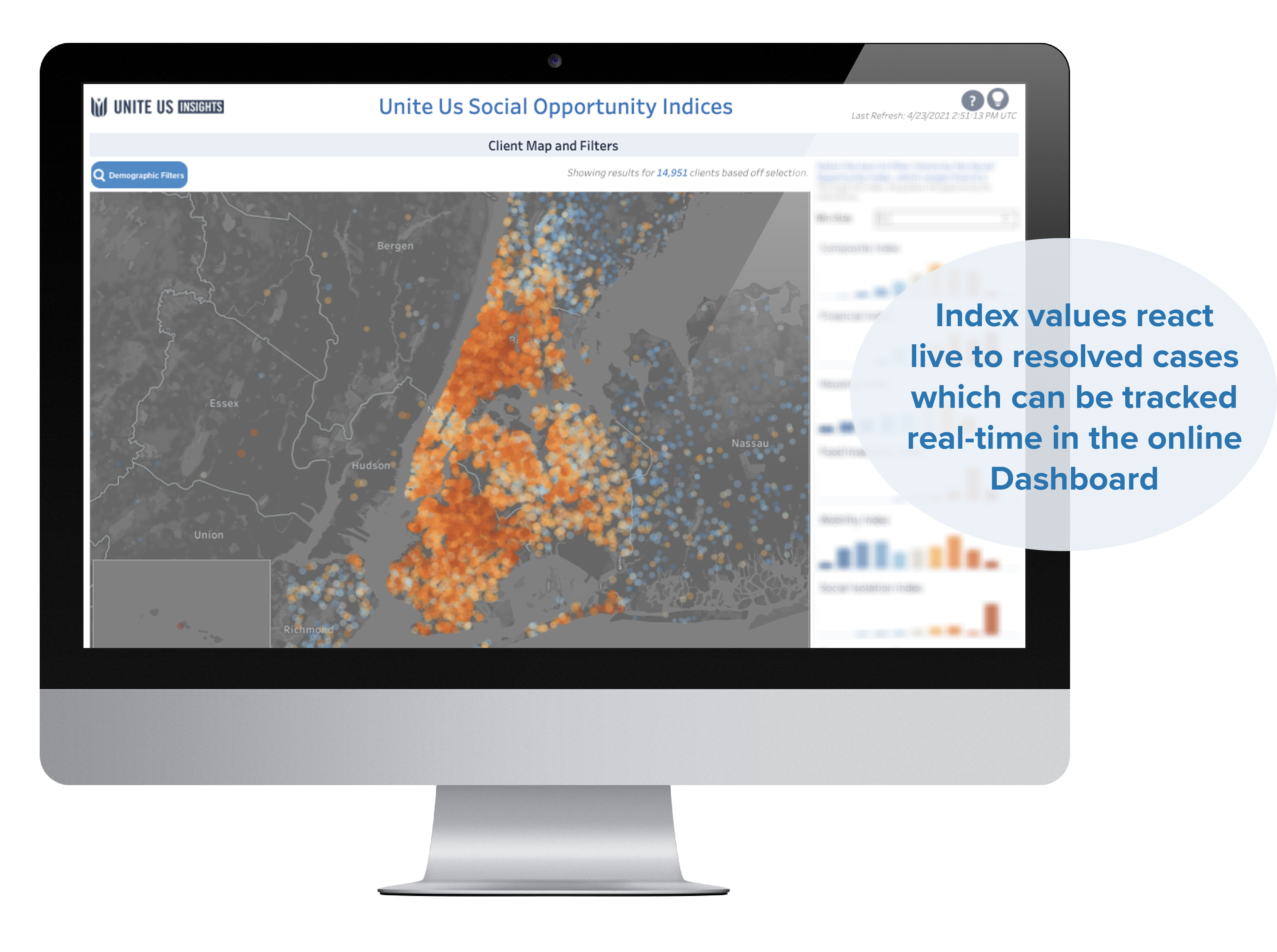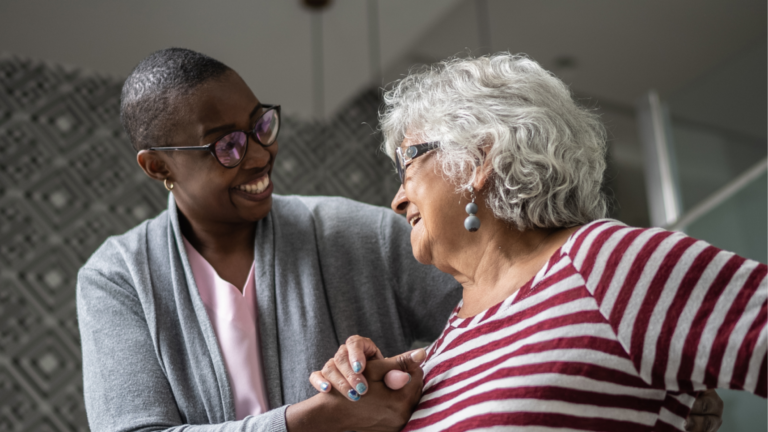
New Product Offers Industry-Leading SDoH Insights
The future of health is rooted in communities. Social determinants of health (SDoH) — understanding a person’s full life including where they live, with whom, and under what types of stress — can inform multiple interventions and ultimately lead to better health. The COVID-19 pandemic revealed the critical importance of understanding SDoH, as hospitals with limited beds scrambled to figure out the social context of their less critical patients when it came time to discharge them safely.
This need extends beyond the pandemic. Moving from reactive to predictive care is critical to reducing costs while improving care.
Unite Us offers the only end-to-end solution for social care. Using our Social Opportunity Indices (SOI) along with our platform allows you to identify and predict the needs of your community, enroll individuals in high-impact interventions and services, efficiently coordinate care in the community, leverage meaningful insights to improve the system, and enable sustainable and impactful funding for social care.
“Community Risk Scores” Versus an Individual Approach
For decades, healthcare organizations have relied on various clinical risk scores to make informed patient-care decisions. These scores, some simple, some more complex, are the basis for different models and tools. For example, a blood pressure reading above a certain threshold might prompt a specific treatment, while other clinical risk scores might trigger more tailored recommendations.
Healthcare organizations can now also evaluate potential risks in the social sector. So far, though, these scores have focused mainly on neighborhood- or community-level risk measures.
While community-level health and social risk scores provide key information to understand a patient’s overall health care needs, these insights don’t always tell the whole story. Recent research published in JAMA Network Open found that 42 percent of patients with at least one social risk lived in neighborhoods not defined as disadvantaged, a finding that suggests relying solely on community-level data to inform client-level care decisions could result in some clients falling through the cracks.
Unite Us developed the SOI to fill this gap. The SOI toolkit, which incorporates public and proprietary Unite Us network data, allows organizations to dynamically evaluate the individuals, communities, or geographies they serve across six categories of social need (social isolation, housing insecurity, environmental stress, food insecurity, mobility needs, and financial insecurity) as well as a composite index.

Communities and Individuals Are Not Risks
At Unite Us, our mission is to connect health and social care. Our team developed the SOI to differentiate our approach from the risk-focused and community-level framework traditionally used in the healthcare industry. The SOI inform organizations about how SDoH directly impact the clients they serve. The standard risk-based framing fails to reflect how systemic factors drive inequities in health outcomes, and how a robust analysis of those systemic factors can translate into opportunities to better serve our clients and communities.
“The innovative design of the SOI provides predictive insights that lead to a more targeted and personalized approach. Uniquely, the toolkit is built using seven years of Unite Us intervention and service-episode data, resulting in indices that reflect the actual drivers of individual needs,” says Nick Lovejoy, director of analytics at Unite Us. “While other SDoH indices are static, the SOI models are ‘online,’ meaning that once someone is connected to services, the index scores respond in real time.”
For example, a client who presents at the emergency department seeking emergency shelter may also be experiencing food insecurity. The SOI allow health care providers to address those needs during the visit.
Because the SOI provide high-level information about a patient population as well as client-level insights, organizations can identify individuals within a specific group who may benefit the most from additional support. This helps ensure that those in need are connected to opportunities for improved health across a variety of potential interventions.
Partnering with Unite Us to Identify Opportunities to Support Social Care
The SOI shifts client care upstream, allowing health care providers to identify opportunities for social intervention and deliver full-circle coverage, closing gaps in care. Not only that, our Unite Us Network Hub Support team can expertly utilize SOI to support organizations in identifying individuals in each community with high social care needs and predictively driving them to the Unite Us network. Learn more about this and all of our Unite Us Insights offerings by requesting a demo today.
About Unite Us
Unite Us is the nation’s leading software company bringing sectors together to improve the health and well-being of communities. We drive the collaboration to identify, deliver, and pay for services that impact whole-person health. Through Unite Us’ national network and software, community-based organizations, government agencies, and healthcare organizations are all connected to better collaborate to meet the needs of the individuals in their communities.



